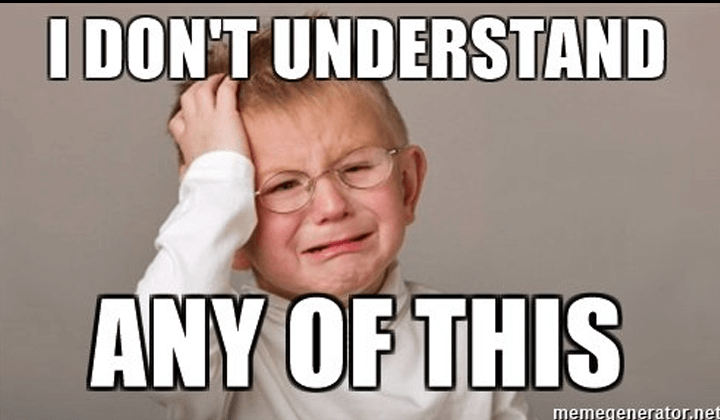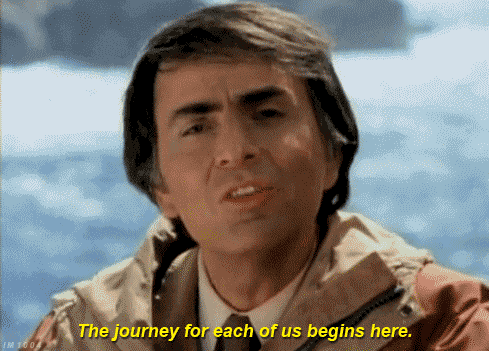Why white evangelicals support Trump
A (more) distilled version of what I've written about obsessively
You can find the sources for this piece in this document. The hyperlinks didn’t transfer and I am lazy.
For fear of repeating this post, or this one, or this one, or this one, I still see people confused out there about what the fork is the deal with Trump and white evangelicals. We thought they didn’t like people of low character. We recall them losing their minds over Bill Clinton. What are they doing going along with a thrice-married adjudicated rapist who rarely utters a truthful sentence, has based his entire career on fraud, is a convicted criminal, and attempted to overthrow American democracy?
I feel like I’ve gone too meandering-philosophical on you in previous attempts to answer this, so I’m gonna try to make it clearer here. However, if you want to go REALLY REALLY philosophical—like Ancient Greek levels—check out this brilliant piece by our friend Jay. He goes all Plato and Aristotle on us, and it will grow you some brain cells, I promise.
First of all, let’s establish up front that white evangelicals as a group do indeed support Donald Trump. In fact, I would argue he owes his entire political career to white evangelicals. They are an incredibly valuable voting bloc to any politician, and they are committed to this guy like I am committed to my fake adopted son Baker Mayfield.1
Bottom line: A Mighty Fortress Is Their Vote.
In 2016, 2020, and 2024, roughly 80% of white evangelicals, who make up roughly 20% of the electorate (22% in 2024) voted for Trump. In swing states, the numbers are comparable to the national numbers.
Evangelicals also overwhelmingly supported Trump in the 2024 Republican primary, even with a good, viable option available (Nikki Haley). In the South Carolina primary of 2024, 71% of white evangelicals voted for Trump, while non-evangelical whites and evangelical blacks overwhelmingly voted for Haley.
There is no comparable voting bloc with this combination of size, homogeneity, immovability, and participation in the American electorate. Although Democrats won in 2020 because of turnout and slight shifts among other groups, it's clear that Trump would not have been able to stay politically relevant without white evangelicals.
In addition, white evangelical support mitigates Democrats' overwhelming advantage with two other groups, women and those with college degrees. If you are a woman and/or have a college degree you are very likely to vote for Democratic. But not if you are also a white evangelical, then you will almost certainly vote Republican.
Incidentally, over half of white Protestants of all kinds, evangelical and mainline, supported Trump. But whereas with white mainline Protestants, the number is something like 55% compared to white evangelicals 80-82%. By contrast, 86% of Black Protestants oppose Trump.2
So why on earth are they so stuck on this guy? A major reason is due to the rise within evangelicalism of Christian Nationalism (CN). CN has gotten a lot of play of late, so I’m going to mainly leave that discussion to others. But briefly, CN is the belief that Christians (and implicitly white Christians) should "own" America and its government, that their power is God-ordained, that they should be privileged in law and society, and that undemocratic means (like maybe violently storming the Capitol, say) are justified in attaining these ends. Essentially, CN the desire for political power at all costs to achieve religious dominance by fiat. And if you want to dominate in a pluralistic democracy when you’re not the majority, it helps to have a large, orange authoritarian friend.
But I’m more interested in the fealty of “normal” evangelicals to Trump. Although CN as a movement is a growing within white evangelicalism, most white evangelicals do not fit that description. They are more interested in snagging the best donut variety at their church coffee hour than storming the Capitol with the Proud Boys. And they aren’t consciously attracted to Trump as an authoritarian.3
In fact, I’ll be charitable here (for once) and say most white evangelicals aren’t so much attracted to Trump as they are susceptible to him. Because, to put it simply, white evangelicalism as a culture is highly susceptible to authoritarianism. Which seems ironic for a movement that doesn’t have much structural hierarchy (there’s no evangelical Pope, despite the self-appointment of every Theobro on Twitter) and is ostensibly based on personal faith. Stay with me.
First of all, historically, right-wing authoritarian movements have always exploited religion. Authoritarian leaders know that if you can lead people around by their deepest beliefs, they will follow you anywhere. And deeply religious people are almost by definition attracted to the kind of certainty and clarity that authoritarian leaders offer. Wanting certain, clear answers to life’s vexing questions is the entire appeal of any religion and always has been.
One manifestation of the certainty, clarity, and order that authoritarian movements offer and that particularly conservative religious people crave is rigid gender roles. Authoritarian movements (Nazi Germany, Orban’s Hungary, Putin’s Russia) often worship the traditional family, militant manhood and female submission, and, in theory, sexual purity.4 In addition, fascist movements have always targeted the LGBTQ community, as both a challenge to the gendered social order and as an easy, already marginalized scapegoat.
(Side note: what do evangelical purity culture and libertine porn/rape culture have in common? Female subjugation. That’s the real glue of the Trump coalition. Two of Trump’s Cabinet appointments, Peter Hegseth and Matt Gaetz, are the poster-boys here—both sexual predators, both proclaimed evangelical Christians, dedicated to Christian hegemony.)
Turning from the historical record to the topic at hand, white evangelicals in America demonstrate the mutual attraction of authoritarian leaders and religious followers in their toxic relationship with Trump. Clearly, he bought them rather cheaply in the first place by appealing to their notions of gender and sexual morality with his opportunistic (and mutable) pro-life stance and his relentless scapegoating of the trans community. Those issues are extremely important to white evangelicals. Again, they prize certainty, clarity, and order, and issues of gender and sex are one manifestation of that broader need.5
But that need is the more important point for understanding Trump’s appeal to white evangelicals. The foundation of white evangelicalism’s belief system is an approach to—and idolization of—the Bible called the doctrine of inerrancy. This is an insistence that the Bible is the infallible and authoritative word of God, his ultimate revelation for all times and places, and that its interpretation should be as literal and textual as possible.
And in brief, here’s how it has fostered a vulnerability to authoritarianism, despite the absence of hierarchical structures:
A literalist biblical interpretation has created a culture of conformity and obedience to authority that suppresses dissent, discourages critical thinking, and seeks certain, simple answers to complex moral problems, all things that authoritarian leaders routinely encourage and exploit (i.e. "I alone can fix it").
The idea that the Bible as written is THE authority on all things for all times can work to discredit science, history, other expertise, experience that diverges from the majority culture’s, and even one’s own experience. Authoritarians’ power is in large measure derived from controlling and manipulating information, so people accustomed to a single, indisputable source are a dream. In 1984, Orwell wrote that “The Party told you to reject the evidence of your eyes and ears. It was their final, most essential command.” Well, how fortunate for The Party if you have already been trained to do just that by your religious culture.
Inerrancy leads to an emphasis on rigid, correct doctrine and well-defined litmus tests over the embodiment of a more nebulous, less paint-by-numbers ethic. This makes it easier for unscrupulous leaders to impersonate someone of faith. Instead of exhibiting any of the fruits of the spirit, you just have to put on your pro-life costume (with maybe Fruit of the Loom underneath) and you’re good to go!
Inerrancy has further underscored a belief in Christian exclusivity and superiority—We have absolutely certain answers to all existential questions, and we’re the only ones who do—which can create a tribal, Us vs. Them mentality that aligns well with authoritarian tactics.6
Lastly, a quick point about race (as if that’s possible). There’s no question that Trump has employed racism to appeal to white Americans’ basest, most tribal human instincts. He’s also empowered and openly associated with white supremacist groups and figures. Full-on Christian Nationalism is likewise deeply and explicitly intertwined with white supremacy in the American context.
As with authoritarianism, racism for the average white evangelical is not a conscious or overt impulse. On a personal level, these are mostly good, non-bigoted folks who exhibit genuine love and service towards those who are different.
But white evangelicalism as a culture (and frankly, white American Christianity as a whole, including my current mainline tradition) has its roots and most of its history in white supremacy. White evangelical theology largely derives from the same, having evolved from southern, proslavery Christianity. And its emphasis on personal piety and group conformity and all the other things that make it susceptible to authoritarian exploitation has also discouraged a full examination and exhumation of this legacy. So when Trump resorts to abject racism, even if it doesn’t explicitly attract white evangelical support, the full horror of it probably doesn’t register either. Certainly it’s not a deal-breaker. That’s obvious.
Hopefully now you have a better understanding of why a culture that spent decades harping on morals and values and character has been completely captured by a fascist wannabe who has none of those things.
It’s certainly not the first time in history that this has happened. May it be the last.
I now root for a team I once called Tampon Bay, for goodness sake. A pretend mother’s love has no bounds.
61% of White Catholics support Trump, 65% of Hispanic Catholics oppose him. Evangelical Hispanics are trending more in favor of him as time as gone on. Personally, I think this is due to theological links but that’s probably not something I can prove maybe ever. this data is all from Pew and PRRI.
And they tend to not like it when I point out that that is what he is.
Not for the actual leaders, they do whatever they want DUH
I think by now surely everyone here has read Kristin Du Men’s book Jesus and John Wayne, which traces the rise of militant masculinity in white evangelicalism and how that paved the way for Trumpism.
While inerrancy as an explicitly articulated, foundational doctrine is closely tied to white American evangelical history, Christian exclusivity is of course much older and more deeply rooted in Christian history. Without making a judgment on whether or it’s correct doctrine, it’s hard to escape the conclusion that such a claim has fueled centuries of oppression and violence by Christians against those who are not.












I'm not sure how it fits in with your piece, but one thing I noticed about Evangelicals is that they are, by their own reckoning, extremely oppressed. Constantly on the brink of having their religion ripped from their praying hands, by secularists, humanists, progressives, LGBTQ+ people, and who knows how many others. That's an awful lot of enemies! How have they managed to somehow hang together in this unceasing onslaught?
Someone just tuning in today might think that this persecution of decent people is a recent development, perhaps a reaction to the scourge of trans kids acting in school plays, or gay couples firebombing bakers who won't supply cakes for their "weddings." But the entire 20th Century, as well as the 21st so far, is an endless stream of terror directed at Believers. The new terrors make the old ones seem so tame, that the life-or-death battles against Darwinism, where our kids were this close to becoming Communists indoctrinated to reject their parents and serve a Godless State, are now seen as "the good old days" and a time we need to get back to if America is to be "great again."
Other denominations, like Methodists (yea!), Presby's and Episcopals, don't do this. For all their faults, they believe that when Jesus speaks of the "least of these" he's not talking about them, but the people they should serve. They are more likely to be at the forefront of movements for social justice than leading a reactionary movement to oppose them.
I really can't figure what makes them tick, but personally, I'm extremely grateful not to live in their world.
As an older person now, I look back at Plato et al as something that makes little sense at all now - I read this material extensively from 1968-77. The notion of objects as ideas more or less given life or presence is the wrong approach in the face of the modern approach of data. I write this as an excellent student.. but now it just seems bonkers. For me, reality may be real but the things in the world are constantly changing (in terms of what we know about them). Not important for objects like a table, but a real problem when it comes to cellular biology. This endless change or adjustment even goes to social norms. I will share a discussion in 1989 or so among life insurance examiners concerning estates and such. The issue of gay men came up and at the time we as a group did not think that gay men formed families. It was not a mean spirited discussion but we were simply not aware of it. But now we know gay men and women do form families etc.
So nothing is fixed. The decent person evolves.
Re the Evangelicals, well contemporary life must seem an assault on all they believe. Same with white folks in rural America. But we all need to learn to adjust.
Sadly the bible far from being inerrrant is not even a single work. It is a collection of tales and letters curated by a bunch of old men and reinterpreted as a single set of ideas.